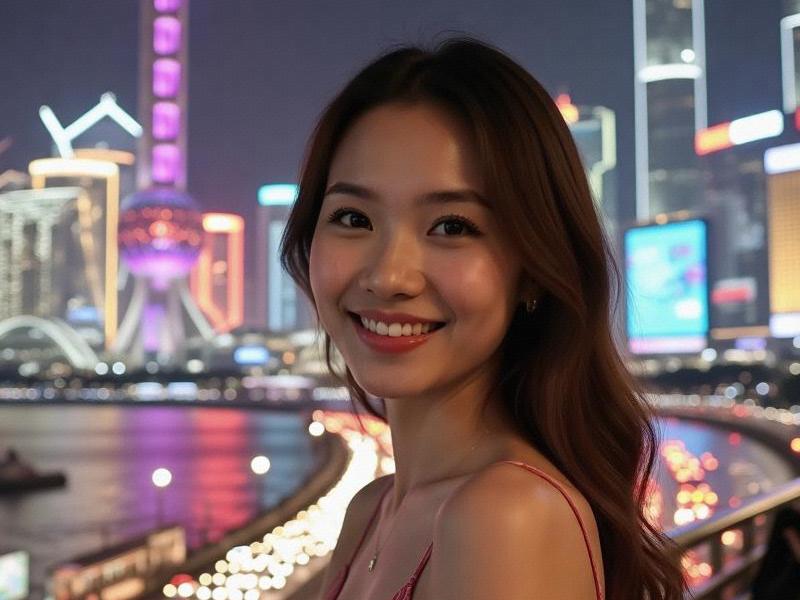
The biometric scanner at Dragon Phoenix Club's entrance recognizes VIP members by their palm veins before the 3-ton bronze door silently pivots open, revealing a chandelier crafted from 20,000 suspended champagne flutes that shimmer above Shanghai's skyline. At adjacent tables, Russian oligarchs negotiate deals over 1982 Lafite while Korean tech heirs celebrate birthdays with custom-designed holographic performances. This is Shanghai's high-end nightlife in 2025 - where discretion meets decadence in venues spending up to $300 million on construction alone.
Shanghai's entertainment revolution stems from its 2021 "Nocturnal Economy 2.0" policy that reclassified premium clubs as "cultural tourism assets." The municipal government invested ¥12 billion ($1.8 billion) in infrastructure supporting the nightlife sector, including:
- 24/7 business registration for entertainment venues
- Special "night mayor" positions to coordinate cross-departmental services
- Extended metro hours reaching 95% of major entertainment districts
阿拉爱上海 - Dedicated nightlife police units with multilingual officers
The financial scale astonishes analysts. Shanghai's 38 premier clubs generated ¥58 billion ($8.9 billion) revenue in 2024, with average spending per VIP guest reaching ¥28,000 ($4,300) per visit. Membership at top venues like Cloud Nine or The Bund Society requires:
- $500,000 minimum deposit
- Three existing member referrals
上海龙凤419会所 - Background checks reaching seven years deep
- Mandatory "cultural compatibility" interviews
Technological integration reaches unprecedented levels. At Galaxy Club, facial recognition suggests drinks based on past orders while monitoring alcohol consumption for safety. Sound systems at Mirage adapt acoustics in real-time to crowd density, and blockchain wine cellars verify every bottle's provenance instantly. Most strikingly, venues employ "digital sommeliers" - AI systems that curate music, lighting and even scent diffusion (using 1,200 possible fragrance combinations) to match patrons' demonstrated preferences.
上海贵族宝贝龙凤楼 The workforce behind this luxury reflects Shanghai's global ambitions. Head mixologists train for three years across five countries before touching a shaker at premier venues. Security teams include former special forces operatives fluent in four languages. Even cleaners at top clubs complete Harvard-designed hospitality courses, with some earning ¥45,000 ($6,900) monthly - triple the city's average wage.
Cultural fusion defines the experience. At Dragon Gate, Peking opera performers reinterpret Beyoncé hits with traditional instruments while augmented reality transforms their costumes dynamically. The newly opened Shanghai Teahouse Disco serves molecular cocktails in jade cups alongside 360-degree projections of classical Chinese paintings. "We're not East meets West," says impresario Zhang Wei, "We're creating something that couldn't exist anywhere but Shanghai."
Regulatory challenges persist. Strict anti-money laundering protocols require clubs to document cash transactions exceeding ¥50,000 ($7,700). Noise complaints from residential areas have spurred investments in "silent club" technology using bone conduction sound systems. Most crucially, the industry battles perceptions of exclusivity through initiatives like monthly "Open Door" events where selected venues host public cultural performances.
As dawn breaks over the Huangpu River, Shanghai's nightlife innovators are already planning tomorrow's experiences. Virtual reality nightclubs promise to merge physical and digital partying, while experimental venues explore "neuro-entertainment" using brainwave-responsive environments. In this city where tradition and innovation dance till sunrise, the future of global nightlife is being rewritten - one meticulously crafted experience at a time.
